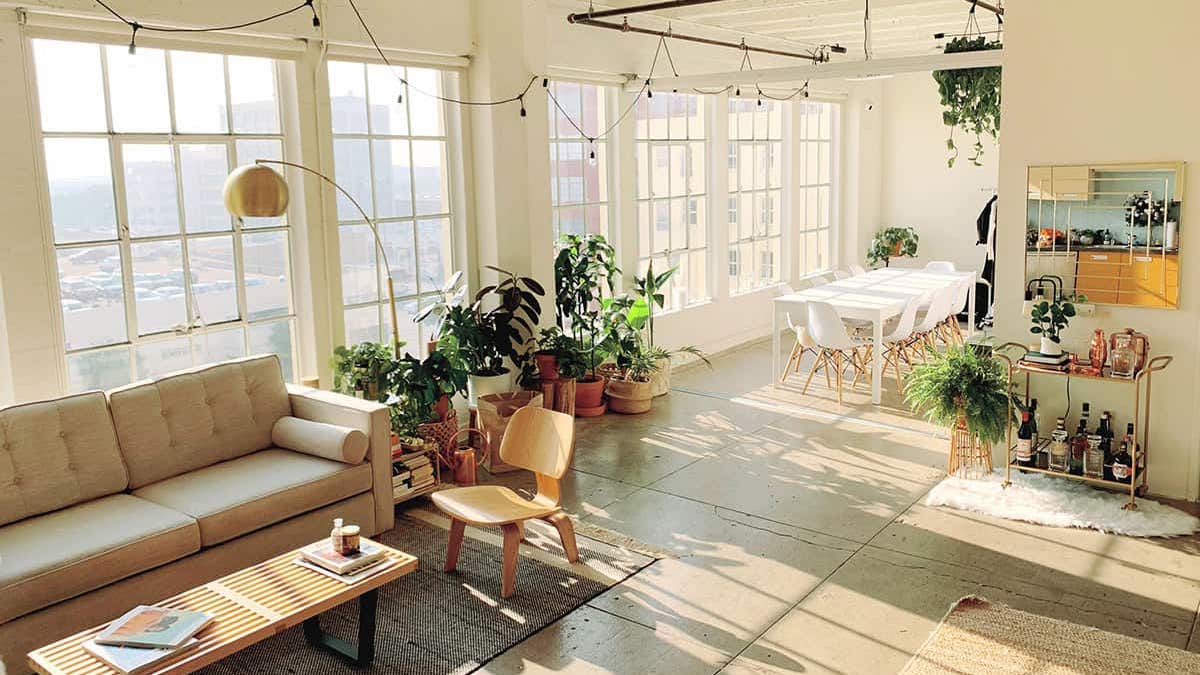Renting out residential properties as short-term sets and studio rentals is becoming more popular – and easier – than ever.
Companies like Peerspace, Splacer, and Thisopenspace, which offer peer-to-peer marketplaces for renting out and booking spaces by the hour, provide a viable, highly flexible alternative to vacation rentals. “You can rent out your space while you go run errands,” said Yashar Nejati, the founder of Vancouver, BC-based Thisopenspace.
As of June 1, Peerspace, a peer-to-peer marketplace for booking spaces, listed more than 14,000 available residential properties to be used in film and photography shoots. In addition founder Matt Bendett told the New York Times that the number of users hosting their residential properties as spaces on Peerspace increased by 300 percent year-over-year from March 2021 to March 2022.
These peer-to-peer digital spaces offer hosts new ways of utilizing their real-life spaces. One host couple, photographer Luciano Stofel and graduate student Carly Gallo, rent their loft for $2,050 a month, and then rent out the apartment to photographers, musicians, filmmakers and more at an hourly rate of $80 to $100.
The services also cater to nonprofits and small businesses, which can use short-term rentals to generate revenue – a necessity for some in the face of widespread inflation and rising rents. The Lab SF, a San Francisco-based art and performance space, hosts one event a month, charging $300 an hour and raking in about $18,000 annually. Another organization, the Variety Children’s Charity of Northern California, makes an additional $110,000 a year through renting out its 60-seat screening room and lounge space.
“Small enterprises are the hidden gems of our city,” Peerspace founder and CEO Rony Chammas told the San Francisco Chronicle in 2016. “Peerspace has helped a lot of them offset their operating costs, sometimes in a very significant way.”
From Household to Revenue Stream
Peerspace hosts are able to set their own hourly rates, which range from $50 to $1,000 (and averaging about $100 to $125). While the company itself takes a 15 percent cut of rental charges and charges a 5 percent service fee to guests, Peerspace handles its clients’ bookings and payments, provides 24/7 customer support, and maintains a $1 million liability insurance policy. Hosts can also have guests leave a security deposit.
As the New York Times puts it, companies like Peerspace are tapping into a trend central to the sharing economy, of transforming household objects into revenue streams.
That rental income can make a major difference in a host’s life. One Times article tells the story of a jewelry designer and adjunct professor who, thanks to her hourly rentals, was able to reduce her teaching load.
“Your apartment is standing vacant 14 hours a day,” competitor Splacer founder Adi Biran told the Times. “Why not use it?”
The Legal and Social Risks
However, renting out one’s apartment can bring legal headaches. While hourly rentals avoid the legal issues that come with a full vacation rental, there is the chance that operating a business out of one’s home can violate city zoning laws or a building’s certificate of occupancy. Additionally, most residential leases explicitly prohibit the commercial use of an apartment.
Renters considering monetizing their apartments also have to contend with the tension that comes from turning a home into a hotel, impacting the lives of neighbors and community members.
“It used to be that you had a group of people, and this was going to be their homes, and they had a common interest in preserving it,” real estate lawyer Phyllis Weisberg told the Times. “Now, that’s gone.”
That conflict has kept some event rental companies, such as Berlin-based Spacebase, from including residential listings in their databases.
“You’re renting out residential space to corporations, it’s the ultimate evil,” explained Spacebase co-founder Jan Hoffman-Keining.
Growth Ahead for the Sharing Economy
The possibilities of the sharing economy are very tempting for those looking for extra income. In early 2021, Airbnb reported that new hosts with only one listing that opened during the pandemic had earned more than $1 billion cumulatively. However, it is also worth noting that Airbnb remains in crisis, with Airbnb shares in the negative for the year 2022.
PricewaterhouseCoopers expects that revenue generated from companies within the shared economy could even reach $335 billion by 2025. Indeed, as home prices rise during the pandemic, hosts have seen their own property values go up, providing opportunities for more expensive rental charges.As well, other apps have identified similar opportunities to squeeze extra funds out of properties. Sniffspot allows homeowners to rent out their green space by the hour for dog owners. Swimply lets homeowners rent out their pools by the hour. “The uses vary, but the underlying concept is the same,” one Times article says: “A homeowner creates a profile on an app, uploads a few photographs, and presumably the bookings roll in.”
About the Author

Ryan Nelson
I’m an investor, real estate developer, and property manager with hands-on experience in all types of real estate from single family homes up to hundreds of thousands of square feet of commercial real estate. RentalRealEstate is my mission to create the ultimate real estate investor platform for expert resources, reviews and tools. Learn more about my story.
